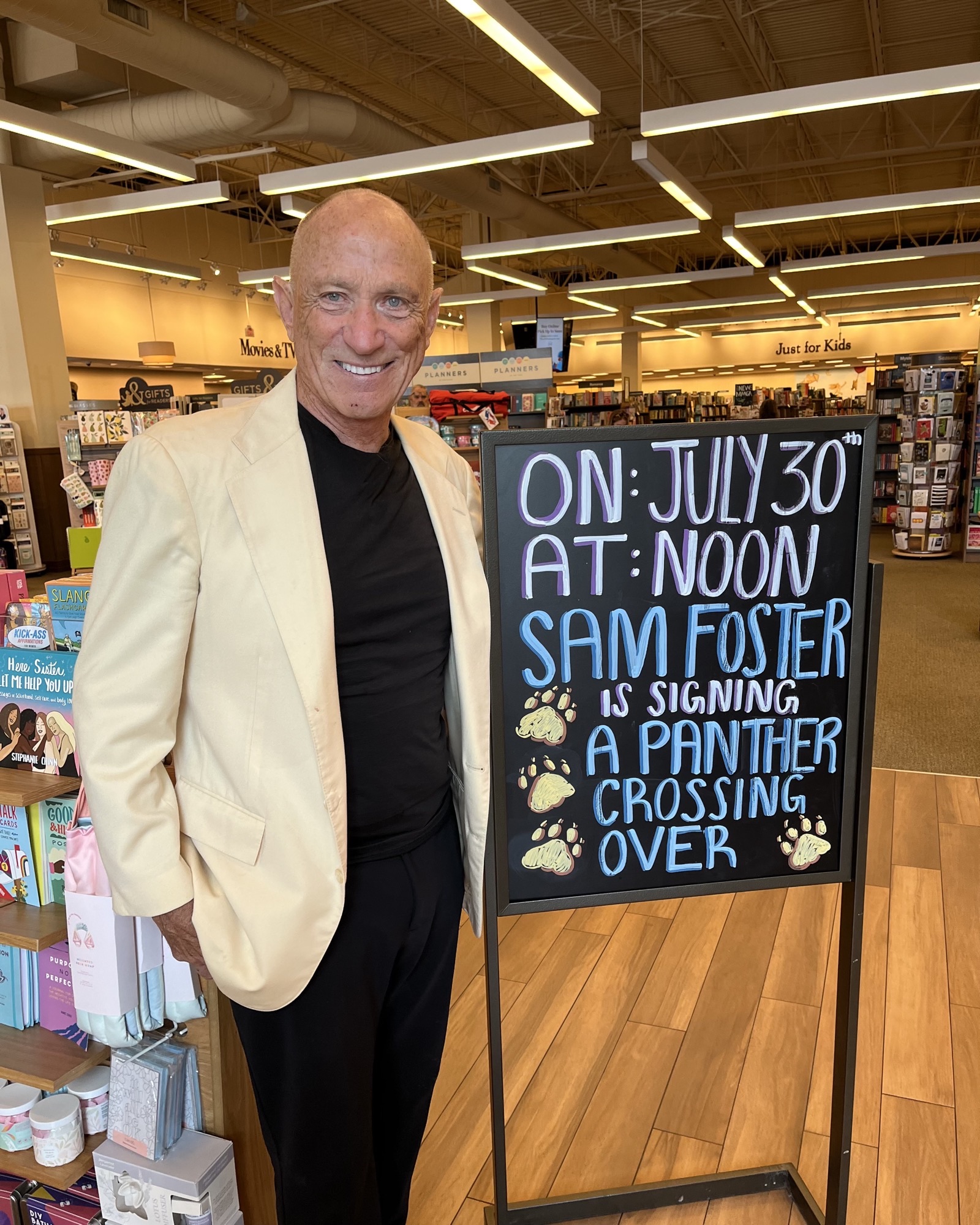
About Sam Foster
My ancestral home is a dying little port on the Illinois River. My father was, to paraphrase the old country song, a blood relative of the wayward wind. Until I came to Los Angeles for college, I’d never lived for more than two years in the same place in my entire life. At the time, I wanted to become a vet—to drive around country roads in a pickup truck and do for farm animals what the farmers could not do themselves. But my inability to pass organic chemistry the first time through and my draft board’s clear statement that I had only eight semesters of deferment before “going into the pool” convinced me to change my major to history.
When I graduated I, like every other man who had graduated that year, had a choice for my graduation trip—Canada or Vietnam. My antipathy to cold weather and a little wisdom from Socrates I picked up in college caused me to select the latter. So, my first job out of college was with the U.S.M.C. A few years later I was honorably discharged after five months in a naval hospital but with body and spirit intact, or pretty close to it.
I’ve always been a storyteller, but at twenty-four I was not willing to “starve for art” and wanted desperately to find stability. So I married my college sweetheart, moved back to Los Angeles, and dove into corporate America. I’m not entirely my father’s son. I’ve got the “wayward wind” gene but mine is recessive. Aside from a year in Washington, D.C. and a few years in New York City, I’ve lived at the beach in Los Angeles my entire life.
It wasn’t until I was in my midforties and had a little money that I was brave enough to indulge my creative impulses. The stories I’ve always liked best had more than a plot and a couple of memorable characters, they also introduced me to an entire world I did not know. I write about things I know just so I can show you worlds you may not. My first book was about a business hustle and set in Los Angeles. My second was about the U.S.M.C. during the Vietnam era. (It was far more about race in America and in the Marine Corps in the sixties than shooting at Vietnamese.) But this story is about the America I grew up with and know well, whose history I understand perhaps better than its present, and whom I will love until I die.
I had a friend who died a few years ago, one whose name you may have heard. It was Al Sparlis. Al was UCLA’s first football All American. He was a one-eighty-five pound center on the 1941–42 and 1945 teams. Al flew in three American wars. He flew with Chennault in China; he flew in Korea and was one of only seven pilots in his squadron to come back alive. When he volunteered again during Vietnam, they told him he was too old. Al could be very forceful, so they gave in and let him fly soldiers back and forth to Hawaii―live ones going over and dead ones coming back. I tell you about Al because he once said something that struck me as so profound, I’ve never forgotten it. “The measure of a man is the things he’s willing to die for.”
This story is about the things in America men, and women, have been willing to die for.

